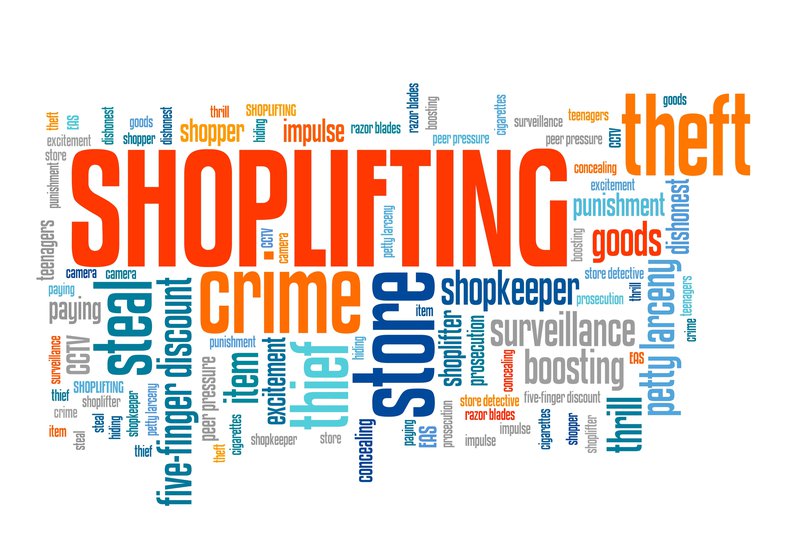Is it still stealing if you didn’t mean to?
Updated | By Wendy Knowler
It can’t be a crime if there was no intent, but proving
the lack of intent can be problematic, as you can imagine.

Listen to the podcast and read the details below:
I’ve taken up a few shoplifting cases lately, where the person accused of shoplifting was adamant that it was an absentminded accident; nothing more.
The thing is, security personnel and store managers are trained not to make a call on whether the theft was intentional or accidental. They are told not to attempt to make a judgment call; only a call to the police. And from there the matter is in the hands of the police and then the court.
For someone who tends to be a bit absent-minded - someone like me - it’s a terrifying prospect.
A Joburg woman - who I’ll call 'Linda', went to gym early one morning recently, as usual, then popped into Clicks with a friend to look for a new mascara she’d seen advertised and wanted to buy.
She asked an assistant if they stocked it, and they did.
She took one, then found two other products - a protein shake powder and waxing kit (almost R300 worth) - and headed to the till.
“I started looking for my purse in my gym bag; I’m not sure what happened but the mascara ended up in my gym bag without me realising, as I was looking for my purse.”
She paid for the other two things and set off the security scanner on her way out.
She was then taken to the manager’s office, and mall security was called.
As she was protesting about it being a misunderstanding, she was handcuffed, detained in a cell in the mall, and then she spent three hours in a police cell before being released on R300 bail.
Here’s a dilemma: she was told she can avoid the court drama and a possible conviction by going the “diversion” route - a first offender goes to NICRO - the National Institute for Crime Prevention and the Reintegration of Offenders - but they have to admit that they intended to shoplift.
As soon as the accidental shoplifters tell NICRO they didn’t intend to shoplift, they are sent back to the court.
She doesn’t want to go to court, but she really doesn’t want to have to admit to doing something she didn’t do, that is intentionally steal that mascara.
I questioned Clicks about the incident, asking whether store managers had the right to exercise discretion in such cases.
No they don’t.
“The store manager and security followed standard operating procedure,” a Clicks spokesman said.
“The unfortunate reality is that theft is a global phenomenon that is not exclusive to Clicks. Our shoplifting policy dictates that if the electronic alarm system is activated, items in the possession of the customer need to be scrutinised against the till slip and the customer taken to the office for investigation. The store manager or security then needs to call the authorities. It is then a matter for them to decide whether they wish to press charges or not.”
It’s an objective process, Clicks said.
Criminal attorney Wesley Rogers of Durban firm WJ Rogers & Associates said the modus operandi in Lindi’s case - asking a store assistant whether the store stocked a product that she then was found to have stolen, the value of the item versus that of the goods she did buy, etcetera - suggest that she did not intend to steal.
“But the unfortunate fact is that security officers are unable to exercise discretion on whether or not the legal requirements for the offence are present,” he said.
And the police will place every accused under arrest for shoplifting irrespective of any explanation.
“SAPS and the National Prosecuting Authority are stats driven organisations, and shoplifting provides a good number of arrest stats for the police, making them look good at the fight against crime," Wesley said.
Most accused people can’t afford an attorney, so they will jump at the NICRO option, where they have to informally accept responsibility for the offence.
“The manner theft by shoplifting charges are handled is by far the biggest miscarriage of justice we encounter,” the attorney said.
How to avoid accidentally shoplifting:
Don't put products in your handbag while shopping - always use a basket or trolley; If using a pram, resist the urge to hang items on it or put anything inside it; Don't enter stores with too much other shopping; rather offload regularly to your car; Don’t eat or drink products in store - security guards are on high alert for this, as some people do this with the intention of not paying and if you accidentally drop the wrapping or empty bottle forget to hand it to the cashier, you could very well be stopped as you exit the store, and accused of shoplifting.
Be mindful - cellphones and children cause distraction which can cause accidental shoplifting.
Also read: So you've said no to the straw. Now what?
To contact Wendy, go to her Facebook page and click on the send email tab.
In case you missed any of the past Consumerwatch shows, find them below:
Show's Stories
-
Katy Perry in space? Some people aren’t buying it
Katy Perry blasted into space… or did she? Well, the internet thinks it ...
East Coast Breakfast 46 minutes ago -
Bella's big leap: From school to international rugby
Grade 10 Kloof High student Bella Howard has been selected to represent ...
Stacey & J Sbu 19 hours ago